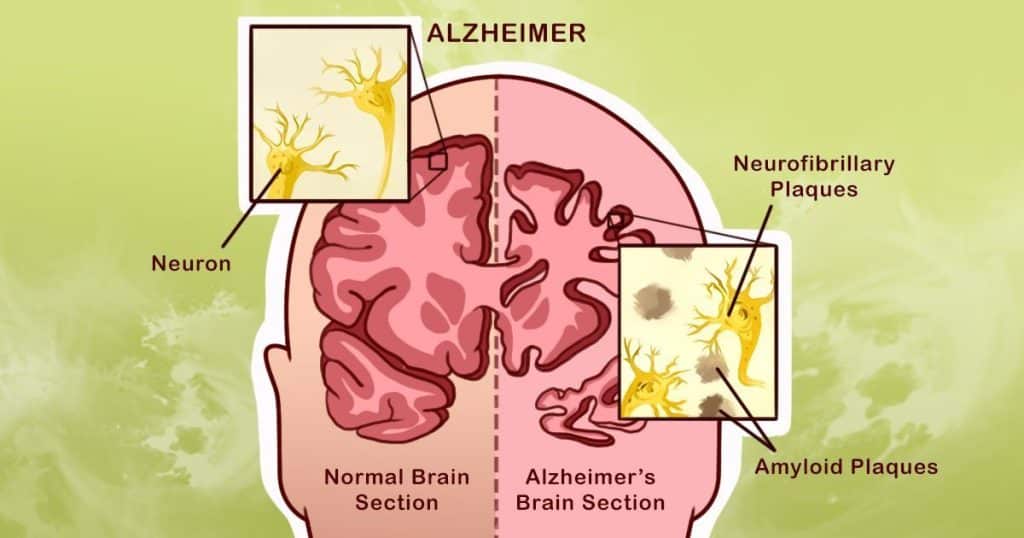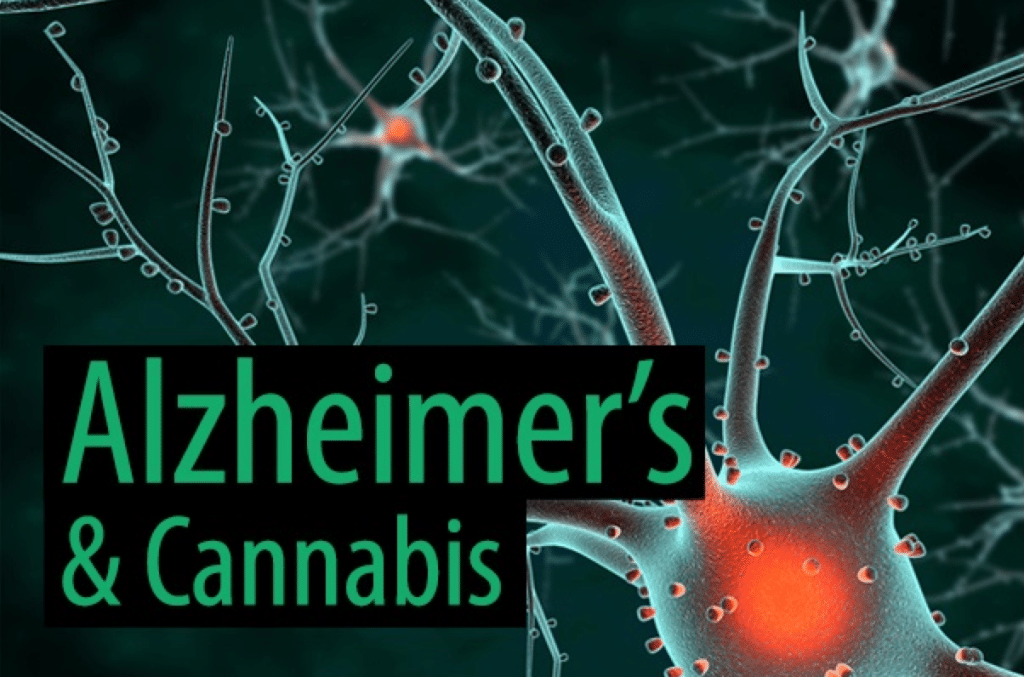Blog
Potential Advantages of Cannabis in Alzheimer’s Disease
There are many biological, environmental, and lifestyle variables that contribute to Alzheimer’s disease, making it a complicated condition. Researchers have discovered a number of possible mechanisms that may contribute to the development and progression of the disease, despite the fact that its precise causes are still not completely understood. Inflammation is one of these processes, and it’s thought to be very important in the destruction and degeneration of brain cells in Alzheimer’s disease. It has been demonstrated that cannabis, and more particularly its two main chemical constituents THC and CBD, have anti-inflammatory properties that may help lessen brain inflammation and slow the progression of the illness.
Additionally, research has indicated that cannabis may support the growth of new brain cells and safeguard existing brain cells from harm, which may help improve cognitive function and memory in Alzheimer’s patients. To completely comprehend the potential advantages and dangers of cannabis use for treating Alzheimer’s disease, however, as well as to create patient-safe and patient-effective treatment modalities, more research is required. We will look at cannabis’ possible advantages for treating Alzheimer’s disease in this article.
Knowing Alzheimer’s disease


Millions of people around the globe are afflicted by the terrible disease known as Alzheimer’s. While it rarely happens early in life, it typically affects people over the age of 65. Beta-amyloid plaques and tau protein tangles build up in the brain as the condition worsens over time and steadily advances. The brain cells perish as a result of these abnormal protein deposits, which also impair normal brain function. Alzheimer’s patients experience deteriorating memory loss, trouble speaking and communicating, confusion, and alterations in mood and behavior as the illness advance. While there is currently no therapy for Alzheimer’s disease, scientists are looking into complementary therapies to lessen its symptoms and slow down the disease’s progression. Cannabis use is one method of treatment that has received more notice lately. THC and CBD are just two of the many substances found in cannabis that have been shown to have possible advantages for Alzheimer’s patients. It has been established that these substances have anti-inflammatory and neuroprotective properties that may aid in halting the disease’s development and shielding brain cells from harm. According to some research, cannabis may also help Alzheimer’s patient’s memory and cognitive abilities. However, more study is required to completely comprehend the potential advantages and disadvantages of cannabis use for treating Alzheimer’s disease and to create patient-safe and patient-effective treatment modalities.
Alzheimer’s disease and cannabis use


The endocannabinoid system of the body is affected by the two major cannabinoids found in cannabis, THC and CBD.
Several physiological processes in the body, such as temperament, appetite, and memory, are controlled by this system. Through endocannabinoid system modulation, studies have indicated that cannabis may be useful in treating Alzheimer’s disease. THC in particular has been demonstrated to have anti-inflammatory properties that may aid in lowering cerebral inflammation and slowing the course of the illness.
It has been established that CBD and THC both possess neuroprotective qualities that could aid in defending brain tissue against harm brought on by beta-amyloid plaques and tau protein filaments. Some studies have indicated that cannabis may also encourage neurogenesis or the development of new brain cells. In Alzheimer’s patients, this might aid to improve memory and cognitive function.
To completely comprehend the mechanisms of action and potential advantages of cannabis for Alzheimer’s disease, however, as well as to create patient-safe and patient-effective treatment modalities, more research is necessary.
Inflammatory Reduction
Alzheimer’s illness progresses largely as a result of inflammation. By stimulating the body’s endocannabinoid system, cannabis has been shown in studies to decrease inflammation in the brain. As a result, the buildup of beta-amyloid plaques and tau protein strands, two signs of Alzheimer’s disease, may be lessened. It is thought that persistent brain inflammation may play a role in the development of beta-amyloid plaques and tau protein tangles, two hallmarks of the illness. According to studies, cannabis may be able to cure Alzheimer’s disease by reducing brain inflammation. This is due to the fact that the body’s endocannabinoid system, which is in charge of controlling a number of physiological functions in the body, including inflammation, can be activated by THC and CBD, the two primary cannabinoids present in cannabis. Cannabis can help decrease the production of pro-inflammatory molecules and increase the production of anti-inflammatory molecules by activating this system, which can help decrease inflammation in the brain. Preventing the buildup of beta-amyloid plaques and tau protein tangles, can in turn aid in slowing the progression of Alzheimer’s disease. To fully comprehend the potential anti-inflammatory effects of cannabis on Alzheimer’s disease, however, as well as to create patient-safe and patient-effective treatment modalities, more study is required.
Keeping Brain Cells Safe
According to research, cannabis has antioxidant qualities that can help shield the brain from harm. This is because cannabis’ two major cannabinoids, THC and CBD, can modulate a variety of physiological processes, including neuroprotection, by interacting with the body’s endocannabinoid system. According to studies, THC and CBD can shield brain cells from oxidative stress and other types of harm by boosting the production of antioxidants and lowering reactive oxygen species. In turn, lessening the loss of brain cells—a significant factor in the illness’s progression—can aid in slowing the progression of Alzheimer’s disease. Research has indicated that weed may encourage neurogenesis, the process of creating new brain cells. Cannabis may be able to help replace the brain cells that Alzheimer’s disease has destroyed by promoting neurogenesis, which can slow down the illness’s progression. To completely comprehend the possible neuroprotective effects of cannabis on Alzheimer’s disease and to create patient-safe and patient-effective treatment modalities, more investigation is necessary.
Neurogenesis Promotion
Maintaining cognitive function and protecting brain health, neurogenesis, the process of producing new brain cells, is essential. According to studies, cannabis may be able to stimulate the brain’s neurogenesis, which may be helpful in curing Alzheimer’s disease and according to research, the two major cannabinoids found in cannabis, THC and CBD, can activate specific brain receptors to promote the development of new brain cells. Cannabis may be able to encourage the development of new brain cells by activating these receptors, which are important in regulating cell growth and differentiation.
CBD has been demonstrated to have additional advantageous impacts on the brain in addition to promoting neurogenesis.
For example, it has been demonstrated that CBD encourages the development of new blood vessels in the brain, which can enhance oxygenation and blood supply to the brain.
In turn, this can aid in enhancing memory and brain function, which are frequently compromised by Alzheimer’s disease.
The anti-inflammatory and antioxidant properties of CBD have also been demonstrated, and these properties may help to safeguard the brain from harm and slow the progression of Alzheimer’s disease. It is significant to note that additional research is required to completely comprehend the potential advantages of cannabis for Alzheimer’s disease and to create patient-safe and patient-effective treatment modalities.
Before using cannabis as a possible therapy for Alzheimer’s disease, as with any treatment, it is crucial to speak with a healthcare provider.
Approaching Cannabis Use with Caution
While cannabis use may have possible advantages in the treatment of Alzheimer’s disease, caution must always be exercised when doing so. Particularly THC, which has psychoactive qualities, can have a variety of effects on people and can have undesirable side effects like poor judgment and memory. For elderly individuals with pre-existing medical conditions, this can be particularly risky.
Before using cannabis for any medical reason, it is advised to speak with a medical expert. They are able to offer advice on suitable doses and possible drug interactions. To guarantee the quality and security of your cannabis, make sure to only buy it from reliable vendors. It’s possible that some dispensaries don’t follow the rules, which can result in the existence of dangerous contaminants or inconsistent dosages.
Cannabis may have advantages in the treatment of Alzheimer’s disease, including lowering inflammation, preserving brain tissue, and fostering regeneration. However, it is essential to approach its use with prudence and under a healthcare professional’s supervision. To completely comprehend the potential advantages and risks of cannabis use for treating Alzheimer’s disease, more research is required.
Concerns Regarding Law and Safety
It is critical to take weed use’s legality and safety into account. Cannabis is regulated and sold through authorized dispensaries that adhere to stringent safety and quality standards in some states where it is legal. These dispensaries give thorough details on the ingredients, potency, and possible negative effects of the products they offer. To ensure that their goods are safe for consumption, they also make sure that contaminants like pesticides and heavy metals are tested in them. Knowing the product’s quality and safety in places where cannabis is not allowed or regulated can be difficult. Cannabis that isn’t controlled may be tainted with dangerous substances or have inconsistent potency levels, both of which can have a negative impact on health. To guarantee its quality and safety, one must only buy weed from reliable sources, such as authorized dispensaries. It’s critical to consume cannabis safely by beginning with a small dose, not combining it with other drugs, and never operating heavy equipment or driving a vehicle while high. People can use cannabis for its potential to treat Alzheimer’s disease safely and ethically by adhering to these rules.
Possible Alternative Alzheimer’s Treatment Using Cannabis
Cannabis may have advantages in the treatment of Alzheimer’s disease by lowering inflammation, safeguarding brain tissue, and fostering regeneration.
To completely comprehend its effects on Alzheimer’s disease and its potential as a treatment option, more research is necessary.
Additionally, it should be used with care, particularly in the case of elderly patients who already have medical conditions. Before using cannabis for any medical condition, it is crucial to speak with a medical expert. You should also only buy cannabis from reputable vendors to guarantee its quality and safety.
It’s also critical to think about cannabis use’s law and security implications and to only use it in places where doing so is permitted and secure. Overall, despite the fact that cannabis appears to be effective in treating Alzheimer’s disease, more study is required to fully comprehend both its advantages and disadvantages. Prior to using it for any medical purposes, it is crucial to proceed with caution and always obtain advice from a healthcare professional.


